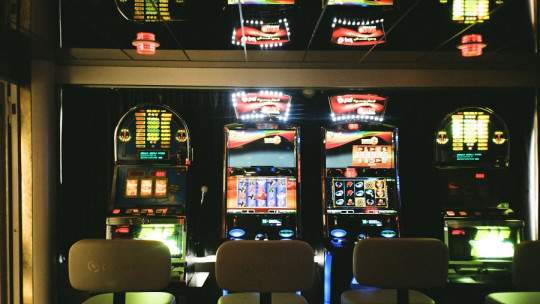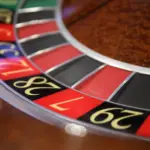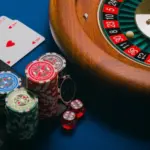Although the word “game” is usually associated with pleasant experiences and, in general, with the world of leisure, the truth is that these types of experiences can be linked to mental health problems. We have a clear example of this in cases of gambling addiction and compulsive gambling, which lead the person to feel an irresistible need to participate in certain games.
Luckily, there are currently effective therapeutic resources to solve these disorders, as long as the person seeks professional help. To better understand what they consist of, in this article We will talk about what the psychological treatment of compulsive gambling and gambling addiction is like.
What are compulsive gambling and gambling?
Pathological gambling, also known as pathological gambling, is a psychological disorder belonging to the category of behavioral addictions, and is characterized by an uncontrollable need to participate in games of chance very frequently, suffering intense discomfort if it is not satisfied. as soon as possible, and which gives rise to a feeling of loss of control over one’s actions.
For its part, The concept of “compulsive gambling” is much less defined and, in fact, it is not technically defined as a psychopathology, something that does happen with pathological gambling, as we have seen. Due to this ambiguity, this term can be used in three different ways.
First of all, sometimes people talk about compulsive gambling using this name to use it as if it were a synonym for pathological gambling, although this is inaccurate and not recommended to avoid confusion. The reason why this term is sometimes preferred may be that “compulsive gambling” may be easier to understand when referring to problems controlling one’s behavior, while the word “pathological” is more abstract and generic.
Secondly, you can refer to a possible behavioral addiction not towards gambling, but towards video games. Now, there is currently still debate about whether this type of alteration is technically part of the category of addictions or, on the contrary, it should be part of another, such as impulse control disorder (which previously contained the gambling addiction)
And thirdly, the term “compulsive gambling” can be used to refer to various psychological problems that do not fit with any specific diagnostic category, but that have common characteristics: they harm the person’s quality of life, and are They rely on a series of problems to contain the desire to participate in games. It must be taken into account that even if they are not clearly described in diagnostic manuals, the behavioral patterns that cause discomfort are a more than justified reason to take it seriously and go to therapy.
How the psychological treatment of compulsive gambling and gambling addiction works
Although, as we have seen, these two concepts only partially overlap, in practice, both types of psychological disorders have many characteristics in common, especially in relation to problems controlling what we do. That is why, although therapy is, by definition, a personalized process adapted to the particularities and needs of each patient and their context, it can be said that there are a series of functions that take place when treating patients in psychotherapy. who have developed this type of alterations.
Taking this into account, here you will find a summary of the pillars on which psychotherapeutic intervention in cases of pathological gambling or compulsive gambling is based.
1. Identification of triggers
After exploring each particular case, therapists help patients who suffer from these types of problems identify those internal psychological processes that usually precede the appearance of the need to play immediately. In this way, the chain of events that leads to relapses is stopped “in its tracks”, such as the excuses that these people make for themselves (to justify the relapse).
2. Training in relaxation techniques
The discomfort generated by not giving in to the desire to play usually leads to a relatively rapid rise in anxiety and stress levels; Fortunately, there are relaxation techniques that help mitigate this phenomenon and restore, in part, the level of activation of the person’s nervous system. Besides, Some of them are relatively easy to apply and can be done in a few minutes.
3. Group therapy
Group therapy is a very useful psychotherapy modality for patients suffering from addictions. These sessions in which several people with similar problems participate generate a context in which mutual motivation among its members is enhanced the expression and understanding of what causes them discomfort, and the possibility of creating networks of support and example in which it is easy to feel heard and take into account what other references do.
4. Training in exposure to game situations
To prepare the person not to constantly relapse into the gaming sessions to which they have developed dependence, they are helped to anticipate the type of situations in which temptation may appear and to manage the feelings that this generates.
5. Development of habits linked to other sources of gratification
Another very important part of therapy consists not only of combating the desire to constantly indulge in gambling, but of engaging in other patterns of behavior that are not unhealthy and that allow us to “disengage” attention from those routines linked to dependency. Therefore, patients are helped to manage their time and include rewarding and motivating activities adapted to their interests in their schedule.
6. Cooperation and communication with family members
Where possible, family members are helped to understand what is happening during the therapy process and to do their part to help the patient in situations where the therapist is not present.
Do you want to start treatment to overcome compulsive gambling or gambling addiction?
If you are looking for professional help to face and overcome these mental health problems, contact our team.
In Liberadict Therapeutic Center We specialize in intervening in addictions with or without substance use, and we work with the most effective therapeutic strategies supported by scientific research. We can help you both from regular therapy sessions and residential treatment at our facilities. You will find us in our center located in Seville.









